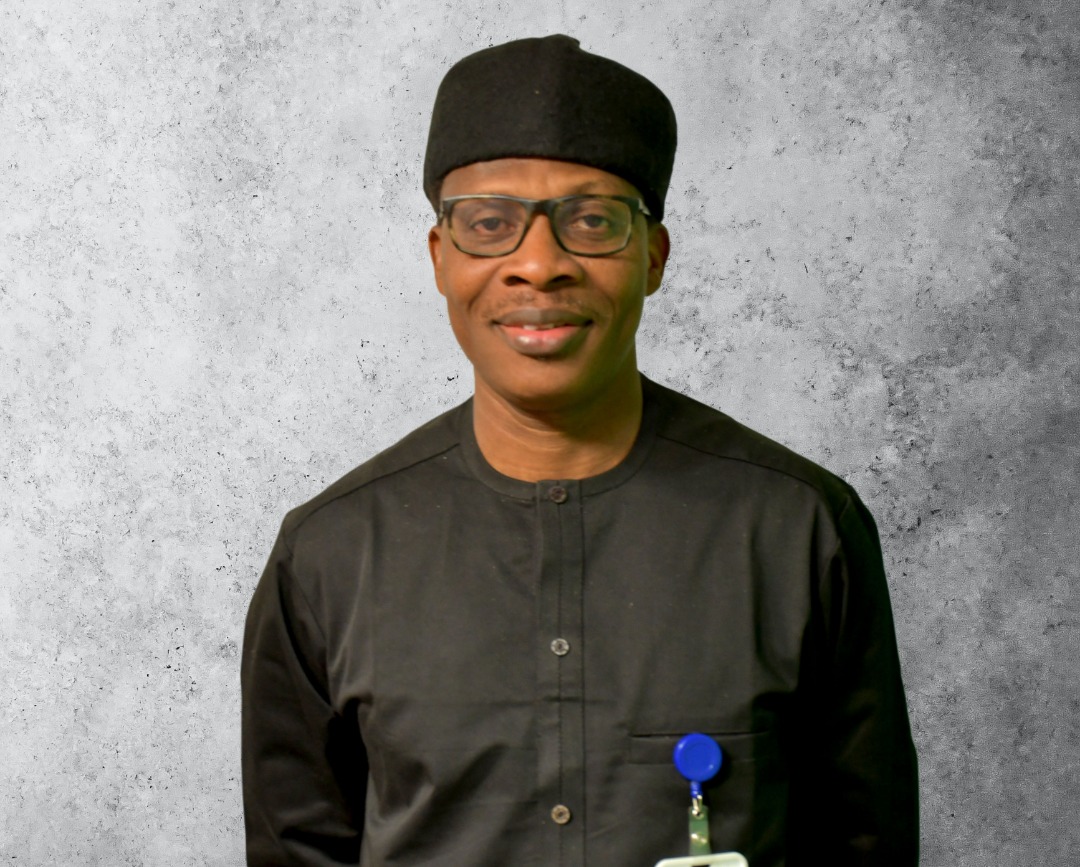Personal success always precedes national success goes one of my favorite quotes from Dr. Sam Adeyemi, a prolific thinker, teacher, and author in the strategic leadership space. The complementary thought was educed by Nelson Mandela (a revolutionary leader) that part of building a new nation means building a spirit of tolerance, love, and respect amongst the people of the country. It goes without reason that a nation is people-built and if we must have the country of our dreams then must we be deliberate in the stride to create such new narratives for our people.
What can you do about pointing that neighbor’s child in the right direction, knowing what you now know? I chose to put forward this question ahead of its time to set an agenda and sail for your mind and imagination while engaging with this article. It is worthy to note that people matter a lot in the development of Countries, and that makes it pertinent to clearly articulate what a developed nation really represents in the globally accepted premise.
According to Investopedia (a thought aggregator in the investment space), a developed economy is typically characteristic of a developed country with a relatively high level of economic growth and security. It says that the standard criteria for evaluating a country’s level of development are income per capita (that is amount of money earned per person in a nation or geographic region) or per capita gross domestic product, the level of industrialization, the general standard of living (our earning affects this, emphasis mine), and the amount of technological infrastructure. We see technology infrastructure here as a measure of what represents a developed economy, just like we saw that 7 out of 10 trillion-dollar corporations are tech-based in my previous article titled, “Everything rises and falls on technology”. It then becomes imperative to juxtapose the Investopedia definition with the Business Development Bank of Canada’s (BDC) definition of a developed country — also called an industrialized country. It has a mature and sophisticated economy, usually measured by gross domestic product (GDP) and/or average income per resident. Developed countries have advanced technological infrastructure and have diverse industrial and service sectors. We see clearly from both thought centers that technology infrastructure and human development are jugular to a properly developed economy. And that when people are trained to become sophisticated in their work, by what work-demand requires globally, a developed economy is a direct derivative.
Furthering on this thought, we will consider the top 12 developed countries according to World Population Review’s publication in 2021. It shows a list of countries and their Human Development Index (HDI) in the bracket. These top twelve countries are: 1 — Norway (0.957), 2 — Ireland (0.955), 2 — Switzerland (0.955), 4 — Iceland (0.949), 4 — Hong Kong, China SAR (0.949), 6 — Germany (0.947), 7 — Sweden (0.945), 8 — Australia (0.944), 8 — Netherlands (0.944), 10 — Denmark (0.94), 11 — Finland (0.938), and 11 — Singapore (0.938). All the above-mentioned derived their powers from the United Nations Human Development Report in 2020, where they ranked each country in the world based on its Human Development Index (HDI). The HDI is a measurement system used by the United Nations to evaluate the level of individual human development in each country, and it uses components such as average annual income and educational expectations to rank and compare countries.
Advertisement
The foregoing conversation has brought clarity to how the world measures countries and why earning capacity is at the center of the HDI. We can therefore posit that when a country pays attention to developing the earning capacities of its people, it will be considered a developed economy according to global rankings and acceptable standards. A good question, now that we understand that education can lead us to the top, will then be, what kind of education leads us to the top? What kind of schooling does the future of work-from-home really require? A lot of youths today are getting into depression because the world that the school of today has prepared them for is now obsolete. It then becomes important to reset our sail by looking at what the new world wants to reward. We will now consider the highest paying job options (if we want to begin with the end in mind) and what the average pay in that workspace represents on a global scheme of things.
Ranked by the median base salary in the workspace, as published by Forbes, we have 1. Data Scientist ($95,000), 2. Software Engineer ($90,000), 3. Product Manager ($89,000), 4. Investment Banking Analyst ($85,000), 5. Product Designer ($85,000), 6. UX Designer ($73,000), 7. Implementation Consultant ($72,000), 8. Java Developer ($72,000), 9. Systems Engineer ($70,000), and 10. Software Developer ($68,600). The above job rankings are premised on two surveys, one of the surveys, conducted at Glassdoor, describes the best-paying entry-level jobs for new graduates in 2019. The other report, from Upwork (the online talent marketplace), is based on new Upwork data describing the specific skills that are most in-demand from Upwork’s United States freelancers, and freelancers who are remotely (work-from-home) doing much of their work in the U.S.
In addition, it is important to know and note that a good chunk of these jobs can be done remotely and also pay supercool amounts of money on a global scale. What if you, as an individual, developed a skill to deliberately master one of these high-demand workspaces? What if you re-considered your career and earning capacity and realign with global high-paying work-from-home possibilities? Off the top of my head, I imagine a country like Nigeria, taking responsibility to provide training for 5 million people out of her population (one state, like Lagos, can broker that deal) in capacities to fill highly global-demand roles in the above opportunity areas, with say for an example, earning power of $50,000 per annum while working from home. Now, that is $250 billion in earning potential, a representation of a little above half of our country-wide GDP at 432.3 billion USD (2020) while focusing solely on Oil revenues. We need to shift our focus!
Advertisement
Moreover, notice that the figures used in my calculations are very basal ones and with a population of 206.1m people, and a commitment to developing only 10% of that population to operate within the above-highlighted income-earning ranks, we can move Nigeria to the Top 20 global economies ranked by GDP (without Oil proceeds). With 20m people trained to have an earning from home-work of $60,000 and above, we just created $1.2 trillion in value, which is 3 times our current gross domestic product.
Additionally, for a better understanding of how the foregoing thoughts relate on a global scale, let’s quickly consider the top 20 economies of the world, and their GDP numbers. Updated on 22 December 2021, with GDP being an estimate of the total value of finished goods and services produced in a country’s borders (notice why I am particular about work-from-home or home-work) during a specified period, usually a year. The top 20 list, with countries and their nominal GDP in the bracket, includes 1. United States ($20.89 trillion), 2. China ($14.72 trillion), 3. Japan ($5.06 trillion), 4. Germany ($3.85 trillion), 5. United Kingdom ($2.76 trillion), 6. India ($2.66 trillion), 7. France ($2.63 trillion), 8. Italy ($1.89 trillion), 9. Canada ($1.64 trillion), 10. South Korea ($1.64 trillion), 11. Russia ($1.48 trillion), 12. Brazil ($1.44 trillion), 13. Australia ($1.33 trillion), 14. Spain ($1.28 trillion), 15. Mexico ($1.07 trillion), 16. Indonesia ($1.06 trillion), 17. The Netherlands ($913.86 billion), 18. Switzerland ($752.25 billion), 19. Turkey ($719.95 billion), and 20. Saudi Arabia ($700.12 billion). These numbers are particularly fascinating to me because they tell us how, what we are doing is registered on a global scene, more like the report card of countries.
All of that said, observe that, starting from zero, and with only a population focus of 10% (that is 20m people) trained to work from home in the top-paying skills areas, we have created over $1.2 trillion (without Oil revenue), which brings us to position 15 in the top 20 economies of the world (our report card as a country just drastically improved). And if we so choose to add the existing GDP status of 432.3 billion USD (2020), that brings our position to the top 10 with about $1.65 trillion, now that gets me very excited (as I love to compete and win). Imagine how that repositions Africa in the global scheme of things, with Nigeria housing 1 in every 5 people of dark skin color. Good to realize that we have the required drive, the people’s readiness, and the training resources required to create this new narrative (a very low-hanging fruit). The only question I have for you as an individual is, will you provide the leadership for you and just two additional people (one on your right hand, and the other on your left)? Recall we started with the definitions of national success around personal and national leadership.
Permit me to do a bit of digression thinking to demonstrate how some youths in today’s world space reason. Just while preparing the thoughts to put together this week, I found the 29 years old Sam Bankman-Fried, acclaimed to be the youngest billionaire in the world (currently with a personal net worth of $22 billion). He plans to give all of the money he had accumulated away to charity. It is very notable how he always tried to ask simple, result-oriented questions to start off his drive towards his great goals each time. Like during his search for charities to support, he asked, “what charity saves the most lives per investment dollar?”. Very simple question, and quite fascinating also that he made such huge wealth ($22 b) spotting differences in the various countries exchange rates of cryptocurrency (bitcoin). He found that United State was selling the bitcoin at $11,000 while Japan was selling it at $10,000, so he simply bought it from Japan and sold it to the United States. As simple as this sounds, it was said that on some days, Sam made a million dollars in profit (now that is astronomical for just one person, working from a dingy home). That is definitely some insane amount, and as unthinkable as that may sound, such is the tale of the new economy we are in currently. Yes, the new billionaires will not go about money-making or value exchange using regular techniques. While I do not advocate that people drop out of school, I always emphasize that we augment what they are learning in school with our own set of courses of interest making use of the vast range of online learning resources like Udemy, Coursera, and uLesson to mention but a few. In today’s world, you can learn almost anything from your data-nourished smartphone at the click of a finger. All the high-demand jobs have courses you can purchase for less than N20,000 on the learning platforms that I had mentioned. What differences can you spot in the world around you, and how would you be gleaning your profits from those observed trends? Even much more, what change do you want to make in a fast-moving world and how do you plan surfing that wave to abundant living?
Advertisement
I will close with two of Nelson Mandela’s quotes in a rapid-fire, the first saying that the call now is for each of us to ask ourselves: are we doing all we can to help build the country (individual, emphasis mine) of our dreams? And the second posits that we have a limited time to stay on earth. We must try to use that period for the purpose of transforming our country (person, emphasis mine) into what we desire it to be: a democratic, non-racial, non-sexist country (being, emphasis mine). And he calls that a great task. Martin Luther King Jr. wraps it all up by saying that darkness is only driven out with light, not more darkness. Will your decision today be adding more to the existing darkness, or a bit of light and hope for the next-door neighbor?
I remain open to deliberate conversations on Nation Building and personal development. We can connect and chat as you shoot me an email: [email protected]






